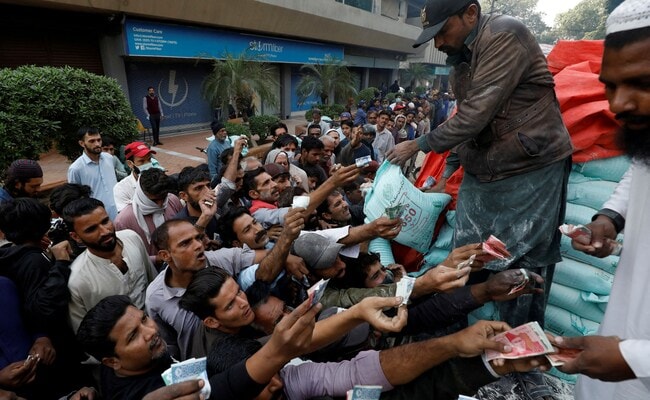China, Saudi Arabia, and the UAE Extend Pakistan’s Debt Relief
Introduction
In a joint effort to support Pakistan’s struggling economy, China, Saudi Arabia, and the UAE have agreed to extend the repayment of Pakistan’s $12 billion debt for one year. This move comes as the International Monetary Fund (IMF) is expected to approve a $7 billion bailout package for Pakistan later this month. The decision by these three key lenders to roll over Pakistan’s debt highlights the significance of international cooperation in addressing economic challenges faced by developing countries.
Background
Pakistan has been grappling with a severe economic crisis, marked by high inflation, a depreciating currency, and a widening fiscal deficit. The country’s external debt burden has been a major concern, leading to negotiations with international lenders for financial assistance. The proposed IMF bailout package is expected to provide much-needed liquidity to stabilize Pakistan’s economy and implement structural reforms.
China’s Role
As one of Pakistan’s closest allies and a major investor in the country’s infrastructure projects, China’s decision to extend the debt repayment period reflects its commitment to supporting Pakistan during this challenging time. China’s Belt and Road Initiative has included multi-billion dollar investments in Pakistan, and the debt relief is seen as a way to ensure the success of these projects.
Saudi Arabia and the UAE’s Support
Saudi Arabia and the UAE have also played a significant role in extending debt relief to Pakistan. Both countries have provided financial assistance to Pakistan in the past and continue to support the country’s economic development initiatives. The decision to roll over Pakistan’s debt demonstrates the strong relationships between these Gulf nations and Pakistan.
Impact on Pakistan
The extension of Pakistan’s debt repayment will provide immediate relief to the country’s struggling economy. It will help alleviate some of the financial pressure faced by the government and create space for implementing much-needed economic reforms. The IMF bailout package, coupled with debt relief from China, Saudi Arabia, and the UAE, will boost Pakistan’s economic stability and pave the way for sustainable growth.
Effect on Individuals
For individuals in Pakistan, the debt relief and IMF bailout package could lead to improved economic conditions, including lower inflation rates and a more stable currency. This could translate into better job prospects, increased purchasing power, and overall economic stability for the people of Pakistan.
Global Impact
The decision by China, Saudi Arabia, and the UAE to extend debt relief to Pakistan has broader implications for the global economy. It demonstrates the importance of international cooperation in addressing financial challenges faced by developing countries. By supporting Pakistan’s economic recovery, these lenders are contributing to stability in the region and fostering stronger economic ties between countries.
Conclusion
The extension of Pakistan’s debt repayment by China, Saudi Arabia, and the UAE, coupled with the IMF bailout package, represents a significant step towards stabilizing Pakistan’s economy. This collaborative effort highlights the importance of international partnerships in addressing economic challenges and fostering sustainable growth. The impact of this debt relief and financial assistance will not only benefit Pakistan but also contribute to global economic stability.





